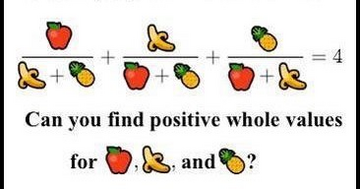AMS Student Chapter Seminar: Difference between revisions
Jump to navigation
Jump to search
No edit summary |
|||
| Line 44: | Line 44: | ||
| bgcolor="#D0D0D0" |October 10 | | bgcolor="#D0D0D0" |October 10 | ||
| bgcolor="#A6B658" |Elizabeth Hankins | | bgcolor="#A6B658" |Elizabeth Hankins | ||
| bgcolor="#BCD2EE" | | | bgcolor="#BCD2EE" |Mathematical Origami and Flat-Foldability | ||
| bgcolor="#BCD2EE" | | | bgcolor="#BCD2EE" |If you've ever unfolded a piece of origami, you might have noticed complicated symmetries in the pattern of creases left behind. What patterns of lines can and cannot be folded into origami? And why is it sometimes hard to determine? | ||
|- | |- | ||
| bgcolor="#D0D0D0" |October 17 | | bgcolor="#D0D0D0" |October 17 | ||
Revision as of 17:46, 3 October 2024
The AMS Student Chapter Seminar (aka Donut Seminar) is an informal, graduate student seminar on a wide range of mathematical topics. The goal of the seminar is to promote community building and give graduate students an opportunity to communicate fun, accessible math to their peers in a stress-free (but not sugar-free) environment. Pastries (usually donuts) will be provided.
- When: Thursdays 4:00-4:30pm
- Where: Van Vleck, 9th floor lounge (unless otherwise announced)
- Organizers: Ivan Aidun, Kaiyi Huang, Ethan Schondorf
Everyone is welcome to give a talk. To sign up, please contact one of the organizers with a title and abstract. Talks are 25 minutes long and should avoid assuming significant mathematical background beyond first-year graduate courses.
The schedule of talks from past semesters can be found here.
